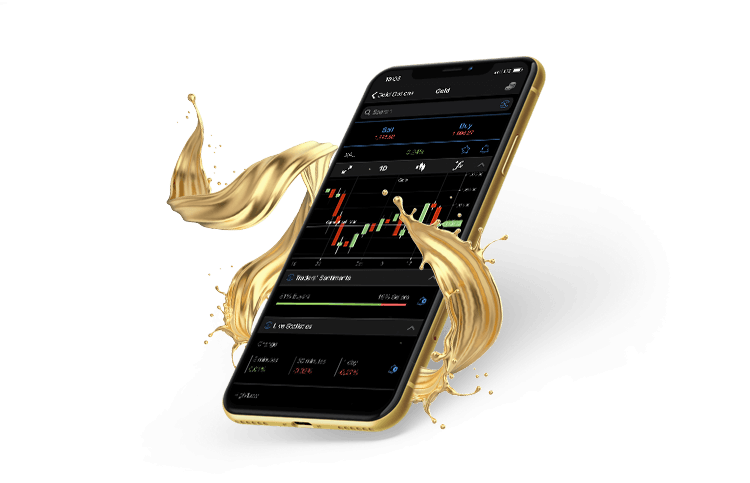Popular Ways to Trade Gold
Gold has been a highly sought after precious metal for thousands of years.
Regarded as a safe haven metal, regardless of location, economic situations, or political instability, it has historically maintained value well over time. Today, Gold can be traded by buyers, sellers, miners, and speculators who may open positions against the price movements of the precious metal without owning the underlying asset.
Each strategy comes with its own potential risks and potential rewards so traders should pick the trading strategy that best suits them.
Trading Gold CFDs
There are multiple ways to trade Gold, including traditional markets and CFDs. Below are four popular ways of speculating on the price of Gold on the Plus500 platform.
Gold CFDsContracts for Difference (CFDs) allow you to open a position without needing to purchase the underlying asset. Rather, a trader can open a position to go Long or Short on an instrument, speculating on the price movement and recognizing potential gains or losses depending on the real-time movement of the instrument’s spot price as traded Over the Counter (OTC).
By trading based on their spot price, rather than on a future price, traders can recognize higher liquidity and availability.

Illustrative prices.
*Options CFDsThe benefit of Options CFDs on Gold is that you can pay less to open your position than if you chose to buy a gold CFD itself. This is because you are opening a CFD position against the Options contract, not Gold itself. This can offer a trader exposure to the instrument at a lower price.
It is important to remember that high volatility of Option CFD can carry higher risks. Moreover, there are many other factors which can cause major fluctuations in the value of Option CFD.
Gold ETFsAn ETF closely follows the value of an underlying asset.
A CFD on a Gold ETF, such as GLD tracks the daily price of Gold, allowing traders to open Buy and Sell positions against the underlying ETF.
Exposure through Gold CFDs
Trading CFDs on Gold allows traders to become exposed to the volatility of this popular commodity without needing to purchase and maintain the underlying asset. It is also possible to go short on a commodity, should a trader speculate that the price will drop.
For example, traders who open a Buy position speculate that the price of Gold will rise. If they are right, they will make a profit on the price difference between the opening price and the higher closing price of their position. If however, the closing price is lower, they will incur a loss that is equal to the difference between the opening and closing rates.
On the other hand, if a trader believes that the price of Gold will fall, they can open a Sell position, allowing them to profit off of the opening price and lower closing price. On the same note, if the price rises from the opening price and the trader closes their position at the higher rate, the trader will incur a loss which will be the difference between the opening price and the higher closing price.
*Subject to operator.